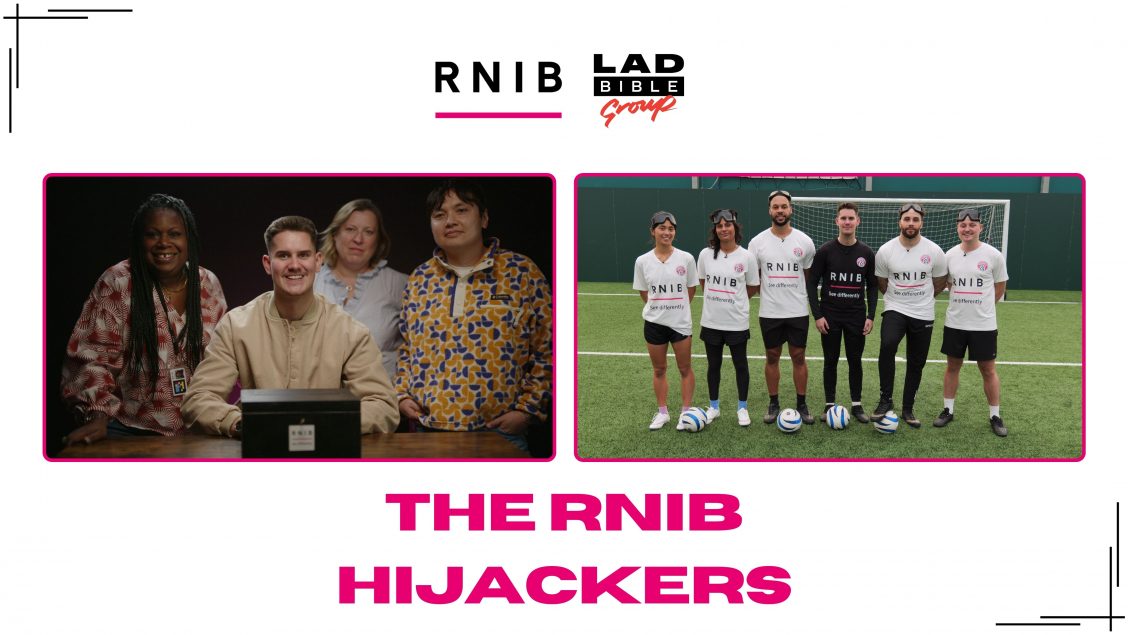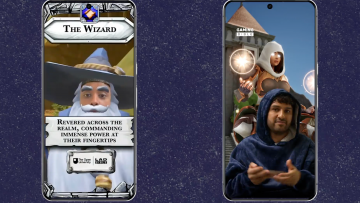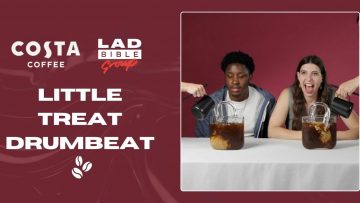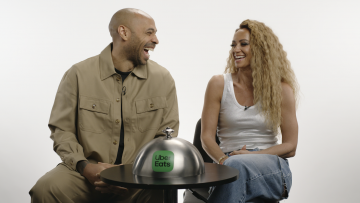RNIB

BACKGROUND
Only 2 in 5 people understand the lives of blind and partially sighted (BPS) individuals, with 90% unaware they can use smartphones. Despite living full, independent lives, BPS people still face deep-rooted stereotypes and unfair treatment.
We worked with the RNIB to challenge stereotypes, inspire inclusion, and push society to “see the person, not the sight loss.”
WHAT WE DID
Introducing the RNIB Hijackers – a takeover that saw blind and partially sighted (BPS) creators reimagine LADbible, SPORTbible, TYLA and GAMINGbible’s through social-first content. From the start, the aim was clear: challenge misconceptions and put real stories at the centre. In a powerful Honesty Box episode, Toby Addison answered unfiltered community questions about dating, daily life and navigating the world with blindness – offering humour, vulnerability and perspective. On SPORTbible, he then coached a sighted five-a-side team in blind football, giving them first-hand insight through GoPro footage. Meanwhile, RNIB ambassadors Amit Patel and Azeem Amir hit the streets with a special edition of LADbible’s well-known format North vs. South, asking blindfolded strangers to guess their location — flipping a familiar format to spark conversation.
On GAMINGbible, Reece Finnegan from Blind and Blonde shared his experiences as a blind gamer, highlighting RNIB’s push for more accessible game design. Every piece of content in the campaign was made fully accessible – a first for LADbible Group, including screen-reader compatibility and alt text.
Beyond the campaign, we backed it up with long-term change: accessibility training for content teams to ensure a more inclusive media future, both on- and off-screen.
RESULTS
By spotlighting BPS creators and using accessible, social-first formats, the campaign broke stereotypes and connected with audiences on a deeper level. Running across LADbible brands, it delivered over 40M impressions (9% over target), with Toby’s Honesty Box episode earning engagement rates up to 578% above benchmark.
We saw a +7pp shift in the belief that BPS individuals can lead full lives, and 73% of viewers said they felt more aware of the BPS community. Even among those unfamiliar with sight loss, interest in learning more rose by 7pp — proving the power of inclusive storytelling.





